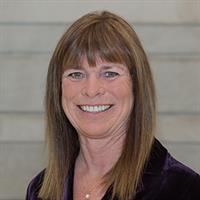Think of corporate crime and think – men getting into trouble.
Women – not so much.
And that’s not because women are more ethical.
It’s because women haven’t broken through to the top corporate ranks.
Give women equal opportunities and they will be equal to men in buckling to the corporate pressures to cut corners, get it done and get in trouble.
Mary Dodge is at the University of Colorado Denver. She studies women in white collar and corporate crime – from all angles.
“Women are going to have to concede the point that there are very few women involved in instigating corporate crime,” Dodge told Corporate Crime Reporter in an interview last week. “My argument is that women have not had the opportunity to engage in corporate crime. Just look at the number of CEOs of the top Fortune 500 companies. Women are not predominant. If women were given the opportunity, perhaps we would see more corporate crime engaged in by women.”
Do you have any doubts that women would be as good at corporate crime as men?
“They would be as good at it as men. A famous scholar once told me this. She said – Mary, it doesn’t matter what the gender is. It does matter that we are all humans. Whether we are male or female, we are tempted by the same pressures or pushed by the same goals to make more profit.”
Within the corporation, women would be as susceptible to the pressures to commit corporate crime as men?
“Yes. We have research out in the realm of psychology that women are more ethical in the workplace, so it’s a controversial point.”
You don’t buy it that women are more ethical?
“I just think women have lacked the opportunity. If you look at embezzlement in the Uniform Crime Report, women are equal to or higher than men in engaging in embezzlement.”
Is it considered anti-feminist to say that women, if given the opportunity, would commit corporate crime at the same rate as men?
“I consider myself a feminist. Some of my work has received some backlash because it is perceived as anti-feminist.”
Where is the backlash coming from?
“Some of the scholars that have done research in looking at women in white collar and corporate crime have found that the data does not support the conclusion that women would be just as likely to commit these crimes.”
You say Kathleen Daly coined the term pink collar crime. And I guess her argument was that pink collar crime is not as bad as white collar crime.
“That work was published in the late 1980s. Her point was that women don’t engage in white collar crime. They engage in pink collar crime. They engage at a level that is suitable to their jobs. If they are accountants or bank tellers and they have access to money, then they will engage in that kind of crime, which doesn’t rise to the level of corporate crime.”
“That was a relatively good data set that was being used. But at that time, certainly women didn’t have the opportunity to engage in corporate crime.”
We have written about women prosecutors and women corporate criminal defense attorneys. There is no indication that women prosecutors are tougher on corporate crime. Or that women corporate defense attorneys are handling corporate crime cases in a more ethical manner.
“Women are in a position where they are facing the same kinds of pressures – whether political or corporate. There are demands. And sometimes those demands can only be met by engaging in illegal or unethical behavior. Why would we think that despite the research studies in psychology, that women wouldn’t give in to those demands?”
“And there are people who absolutely disagree. But we have seen time and time again that when you put women in those positions, they would commit crime.”
Is the study of white collar and corporate crime in academia growing?
“It’s a difficult field to be in. Part of the reason is because the studies that are published are usually quantitative studies. People doing those studies want data. And that’s where I differ from many of the scholars.”
“I do qualitative studies. I do case studies and try to develop theory from there. Many students don’t want to study white collar crime because it is such a difficult area to get data. Qualitative studies are not easy. But they are making a resurgence and becoming more respected. But they still are hard to generalize to a greater population.”
“That has inhibited students from approaching white collar crime as their field of study. But now we are seeing more and more women as academic leaders in the field. Sally Simpson at the University of Maryland. Sally Simpson is a leader in the field. Melissa Rorie at UNLV. She is a young and upcoming star in white collar crime. Shanna Van Slyke at Utica College. Kristy Holtfreter at Arizona State. Those are some women studying white collar crime.”
Does the American Society of Criminology have a corporate crime section?
“Yes, we have a Division of White Collar and Corporate Crime.”
How many academics are in that Division?
“I believe it is over 80.”
How many of them are women?
“I’m going to guess maybe 40 percent are women.”
What do you make of the distinction between white collar crime and corporate crime?
“There is a new journal out called – The Journal of White Collar and Corporate Crime. It is published by Sage. Greg Barak is the editor. It has great potential. And they have made that distinction. White collar crime is so all encompassing. But I argue that corporate crime is more likely to victimize women. Part of that goes to the fact that women are the greater consumers of different drugs, medical devices and cosmetics.”
[For the complete q/a format Interview with Mary Dodge, see 35 Corporate Crime Reporter (18)13, Monday May 3, 2021, print edition only.]
